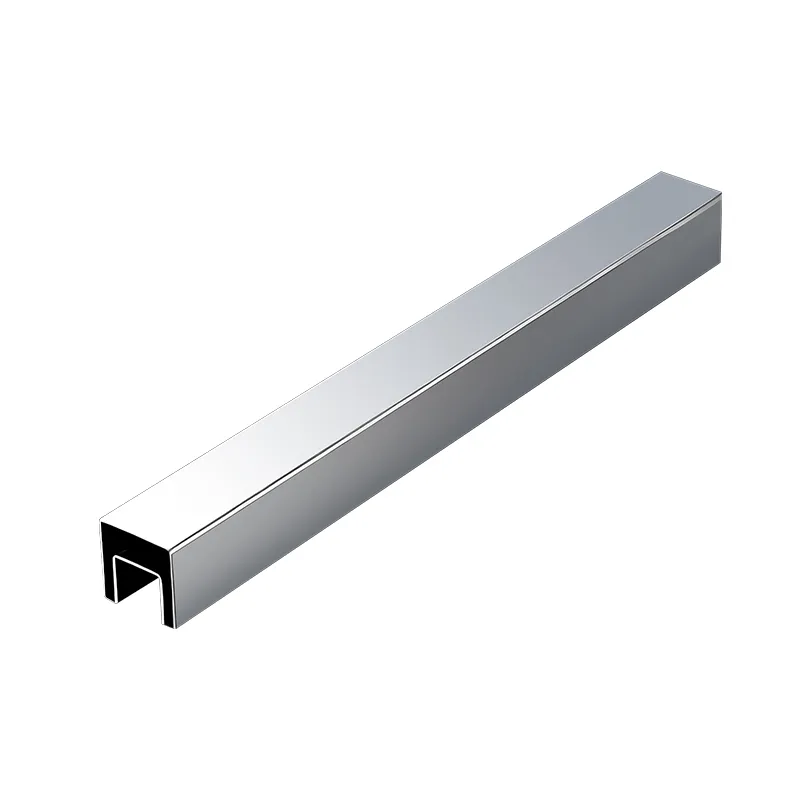automotive exhaust parts
Dec . 13, 2024 09:29
Understanding Automotive Exhaust Parts Importance, Function, and Maintenance
Automotive exhaust systems play a crucial role in the performance and efficiency of vehicles. They are responsible for directing exhaust gases away from the engine and minimizing the harmful emissions released into the atmosphere. In this article, we will delve into the various parts of the automotive exhaust system, their functions, and the importance of maintaining these components for optimal vehicle performance and compliance with environmental regulations.
Key Components of the Automotive Exhaust System
The automotive exhaust system consists of several vital parts, each contributing to its overall function
1. Exhaust Manifold This component collects exhaust gases from the engine’s cylinders and channels them into the exhaust system. It is usually made from cast iron or stainless steel due to its resistance to high temperatures and corrosion.
2. Oxygen Sensors Positioned before and after the catalytic converter, oxygen sensors monitor the amount of oxygen in the exhaust gases. This data helps the engine control unit (ECU) adjust the fuel-to-air ratio for optimal combustion, improving fuel efficiency and reducing emissions.
3. Catalytic Converter One of the most important parts of the exhaust system, the catalytic converter converts harmful pollutants in the exhaust gases, such as carbon monoxide and hydrocarbons, into less harmful substances like carbon dioxide and water vapor. It plays a critical role in meeting environmental regulations.
4. Muffler The muffler is designed to reduce the noise produced by the engine’s exhaust gases. It achieves this through a series of chambers and perforated tubes that dissipate sound waves. By dampening the sound, the muffler enhances the driving experience and ensures compliance with noise regulations.
5. Exhaust Pipe The exhaust pipe is responsible for transporting exhaust gases from the engine components to the outside atmosphere. It must be durable and resistant to corrosion since it constantly comes into contact with hot gases.
6. Exhaust Tips While primarily aesthetic, exhaust tips can also affect the flow of exhaust gases. Some tips are designed to enhance the sound and appearance of the vehicle, providing a sportier look and feel.
Importance of an Efficient Exhaust System
automotive exhaust parts
The efficiency of the exhaust system significantly impacts a vehicle’s performance, fuel efficiency, and environmental compliance. A properly functioning exhaust system ensures that harmful gases are effectively diverted away from the engine and the passenger cabin, enhancing safety and comfort.
Performance An optimized exhaust system can improve engine performance. By ensuring a smooth outflow of exhaust gases, it allows the engine to breathe more easily, which can lead to improved horsepower and torque. In contrast, a blocked or damaged exhaust can lead to backpressure, reducing engine efficiency.
Fuel Efficiency An efficient exhaust system helps the engine maintain an optimal air-to-fuel ratio, thereby improving fuel efficiency. This not only saves money on fuel but also contributes to reduced emissions, allowing for a more environmentally friendly operation.
Environmental Compliance With increasing regulations regarding vehicle emissions, maintaining an effective exhaust system is crucial. A malfunctioning catalytic converter or oxygen sensor can lead to increased emissions, making the vehicle non-compliant with environmental standards. Regular maintenance and timely replacements of defective parts are essential to meet these regulations.
Maintenance Tips for Automotive Exhaust Parts
Regular inspection and maintenance of the exhaust system can prevent performance issues and expensive repairs. Here are some maintenance tips
- Inspect for Leaks Periodically check for any signs of exhaust leaks, such as hissing or rumbling sounds. Leaks can lead to increased emissions and reduced efficiency.
- Check Oxygen Sensors Ensure that oxygen sensors are functioning properly, as they directly affect the engine's performance. Replacing faulty sensors can enhance fuel efficiency and reduce emissions.
- Monitor the Catalytic Converter A damaged catalytic converter can drastically affect engine performance and increase pollutant emissions. Look for warning signs such as reduced engine power or the check engine light illuminating.
- Clean or Replace the Muffler If you notice increased noise or vibrations, it may be time to inspect or replace the muffler. A clogged muffler can hinder exhaust flow and negatively impact engine performance.
In conclusion, the automotive exhaust system is a complex yet vital component that directly impacts vehicle performance, fuel efficiency, and environmental compliance. Understanding its parts and functions can aid vehicle owners in maintaining their cars effectively, ensuring a smooth and eco-friendly driving experience. Regular maintenance and timely interventions can considerably prolong the life of the exhaust system while optimizing the vehicle’s overall functionality.
 Afrikaans
Afrikaans  Albanian
Albanian  Amharic
Amharic  Arabic
Arabic  Armenian
Armenian  Azerbaijani
Azerbaijani  Basque
Basque  Belarusian
Belarusian  Bengali
Bengali  Bosnian
Bosnian  Bulgarian
Bulgarian  Catalan
Catalan  Cebuano
Cebuano  Corsican
Corsican  Croatian
Croatian  Czech
Czech  Danish
Danish  Dutch
Dutch  English
English  Esperanto
Esperanto  Estonian
Estonian  Finnish
Finnish  French
French  Frisian
Frisian  Galician
Galician  Georgian
Georgian  German
German  Greek
Greek  Gujarati
Gujarati  Haitian Creole
Haitian Creole  hausa
hausa  hawaiian
hawaiian  Hebrew
Hebrew  Hindi
Hindi  Miao
Miao  Hungarian
Hungarian  Icelandic
Icelandic  igbo
igbo  Indonesian
Indonesian  irish
irish  Italian
Italian  Japanese
Japanese  Javanese
Javanese  Kannada
Kannada  kazakh
kazakh  Khmer
Khmer  Rwandese
Rwandese  Korean
Korean  Kurdish
Kurdish  Kyrgyz
Kyrgyz  Lao
Lao  Latin
Latin  Latvian
Latvian  Lithuanian
Lithuanian  Luxembourgish
Luxembourgish  Macedonian
Macedonian  Malgashi
Malgashi  Malay
Malay  Malayalam
Malayalam  Maltese
Maltese  Maori
Maori  Marathi
Marathi  Mongolian
Mongolian  Myanmar
Myanmar  Nepali
Nepali  Norwegian
Norwegian  Norwegian
Norwegian  Occitan
Occitan  Pashto
Pashto  Persian
Persian  Polish
Polish  Portuguese
Portuguese  Punjabi
Punjabi  Romanian
Romanian  Samoan
Samoan  Scottish Gaelic
Scottish Gaelic  Serbian
Serbian  Sesotho
Sesotho  Shona
Shona  Sindhi
Sindhi  Sinhala
Sinhala  Slovak
Slovak  Slovenian
Slovenian  Somali
Somali  Spanish
Spanish  Sundanese
Sundanese  Swahili
Swahili  Swedish
Swedish  Tagalog
Tagalog  Tajik
Tajik  Tamil
Tamil  Tatar
Tatar  Telugu
Telugu  Thai
Thai  Turkish
Turkish  Turkmen
Turkmen  Ukrainian
Ukrainian  Urdu
Urdu  Uighur
Uighur  Uzbek
Uzbek  Vietnamese
Vietnamese  Welsh
Welsh  Bantu
Bantu  Yiddish
Yiddish  Yoruba
Yoruba  Zulu
Zulu 












